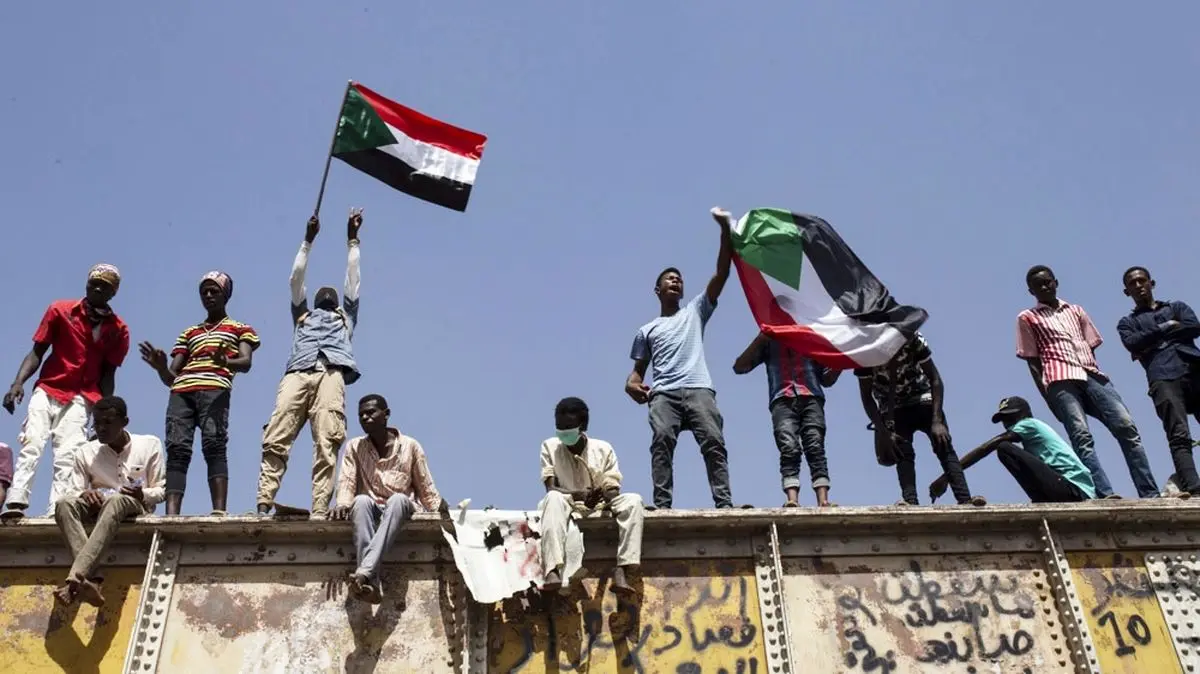Sudan: 'Several killed' on first day of civil disobedience

At least four people were killed as Sudanese security forces moved to quell a civil disobedience campaign launched on Sunday that left streets in the capital Khartoum largely deserted.
Public transport was barely functioning and most commercial banks, private companies and markets were shut, though some state banks and public utility offices were open.
Opposition and protest groups had called for workers to stay at home after security forces stormed a protest camp on Monday, killing dozens and dealing a blow to hopes of a peaceful transition after the overthrow of President Omar al-Bashir in April.
Pro-democracy protesters have been campaigning for weeks to pressure the ruling Transitional Military Council (TMC) to hand power to a civilian-led government.
On Sunday, protesters gathered tyres, tree trunks and rocks to build new roadblocks in Khartoum's northern Bahari district, an unnamed witness told AFP news agency, but riot police swiftly moved in and fired tear gas to disperse the crowd.
"Almost all internal roads of Bahari have roadblocks. Protesters are even stopping residents from going to work," said the witness.
Two people died after being beaten and stabbed and two people were shot dead, the Central Committee of Sudan Doctors (CCSD) said, blaming paramilitary groups.
Security forces arrested a number of airport officials and employees of Sudan's central bank on Sunday, according to DPA news agency, citing colleagues of those detained.
After Monday's bloody crackdown, TMC head Abdel Fattah al-Burhan scrapped all agreements with the Declaration of Freedom and Change Forces (DFCF), an opposition alliance, and called for elections within nine months.
The opposition rejected the plans.
"The civil disobedience movement will begin on Sunday and end only when a civilian government announces itself in power on state television," said the Sudanese Professionals Association (SPA), which spearheaded the months-long protests against al-Bashir.
"Disobedience is a peaceful act capable of bringing to its knees the most powerful weapons arsenal in the world."
The raid came after weeks of wrangling between the TMC, which took over from Bashir, and the DFCF over who should steer a transition leading to elections.
TMC spokesman Shams El Din Kabbashi said on Sunday that the council was willing to listen to the opposition's demands and restart negotiations, which it halted after the attack on the camp.
Political outcome?
Waleed Madibo, from the Sudan Policy Forum, said the campaign is unlikely to bring down the TMC, but it could divide its leaders.
"By using violence as an imperative, it [the military] left the civic society no option but to go through with civil disobedience. They're already rounding up political dissidents, they started assassinating leaders of the sit-in, and by doing so the Transitional Military Council has totally eliminated any chance of a political outcome," Madibo told Al Jazeera.
Led by men in army fatigues, the raid on the weeks-long sit-in outside the army complex left more than 100 people dead, according to doctors close to the demonstrators.
The health ministry, however, said 61 people died in the crackdown, 52 of them by "live ammunition" in Khartoum.
Witnesses say the assault was led by the feared Rapid Support Forces (RSF), which has its origins in the notorious Janjaweed militia, accused of abuses in the Darfur conflict between 2003 and 2004.
Also on Sunday, Sudanese state TV reported that a senior RSF commander, Mohamed Abdallah, had been replaced.
END
